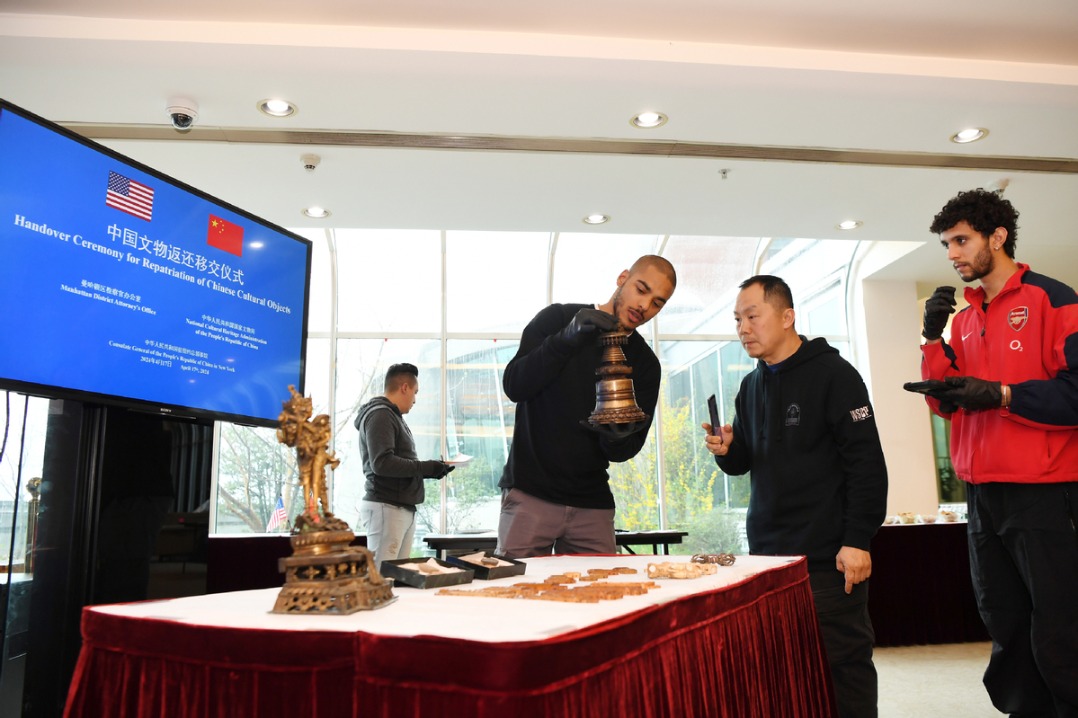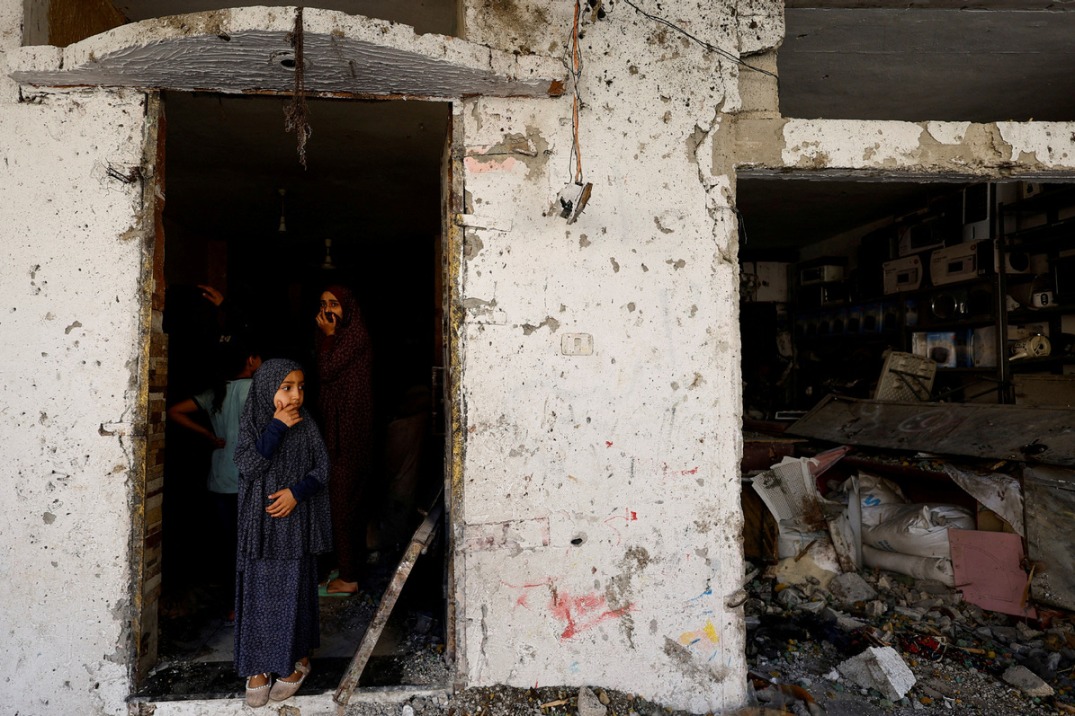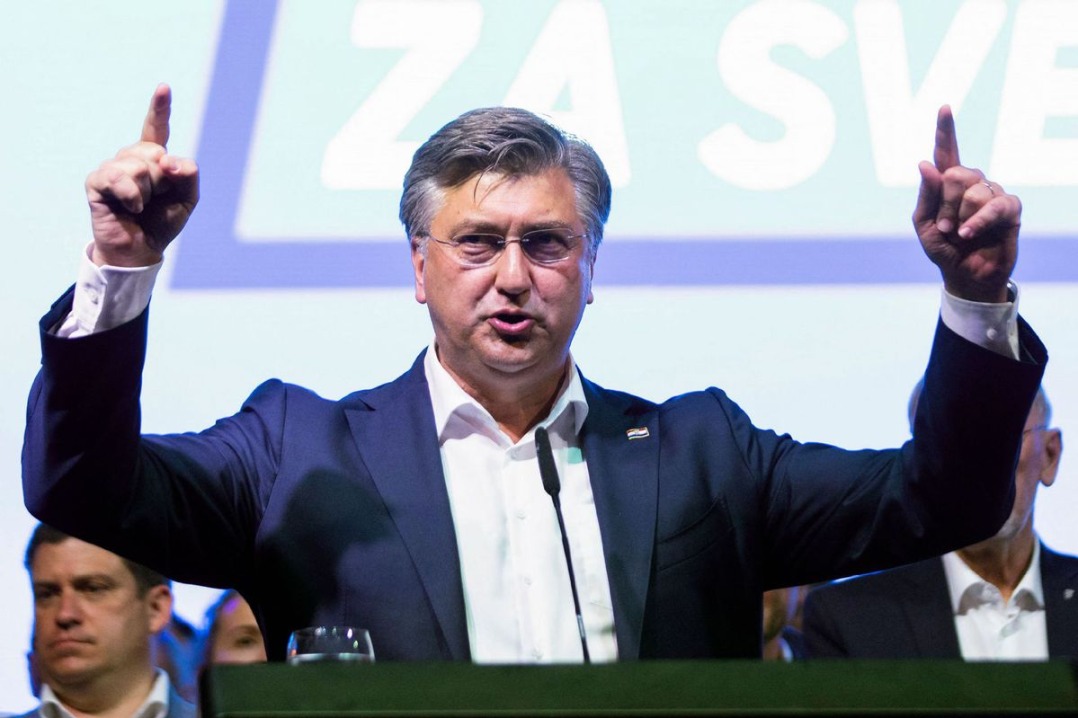Lab tests confirm British findings on nerve agent attack

Report stops short of assigning blame as Russia continues to protest
Tests by four laboratories affiliated with global chemical weapons watchdog the Organisation for the Prohibition of Chemical Weapons, or OPCW, have confirmed British findings about the nerve agent used in the poisoning of a former Russian double agent and his daughter in the British city of Salisbury last month.
Although the OPCW did not go as far as naming the specific chemical agent, or assign blame for the March 12 incident that hospitalized Sergei Skripal, his daughter Yulia, and a police officer, its report said tests on samples collected “confirm the findings of the United Kingdom relating to the identity of the toxic chemical that was used in Salisbury”.
Responding to the OPCW summary, Russian Foreign Ministry spokeswoman Maria Zakharova accused Britain of waging a defamation campaign against Russia, manipulating public opinion and hiding facts.
She said Russia won’t accept any conclusions on the poisoning of a Russian ex-spy unless it gets full access to evidence in the case.
Zakharova charged that British officials were keeping Skripal's daughter in isolation. She added that Moscow will continue to demand access to her and prod Britain to share evidence in the case.
Previously, British Prime Minister Theresa May had said the victims were poisoned with a military-grade nerve agent from the Novichok group, which was developed by the Soviet Union during the Cold War.
The suggestion that Russia was involved was vehemently denied by the Russian governmentand caused a huge diplomatic row between Britain and Russia, with diplomats expelled from both countries. Numerous other nations have also sent home Russian diplomats in solidarity with Britain.
Although details of the OPCW laboratory tests are being kept confidential, it was confirmed that the substance was of a “high purity”, causing Foreign Secretary Boris Johnson to state that “there can be no doubt what was used and there remains no alternative explanation about who was responsible – only Russia has the means, motive, and record”.
An emergency session of the OPCW has been convened for next week,at Britain’s request, to discuss the findings. However, it is unclear what action the OPCW might take, because of splits in its executive council between Russia and Western powers which have also prevented it acting over the use of chemical weapons in Syria.
Skripal remains seriously ill in hospital while his daughter has been released, rejecting a public offer of assistance from the Russian embassy.
On hearing the OPCW’s verdict, Russia’s deputy minister of industry and trade Georgy Kalamanov told the Interfax News Agency that it was impossible to pinpoint the agent’s origin precisely, and repeated Moscow’s demand to be part of an inquiry into the case, a request that has already been rejected by the OPCW.
Previously, a now-deleted tweet from the British Foreign Office suggested that its own Porton Down weapons laboratory had said the nerve agent was produced in Russia.
This was however later withdrawn when the lab’s chief executive Gary Aitkenhead told Sky News that, although the substance had been identified as Novichok, the laboratory was not in a position to say where it had been manufactured.



































